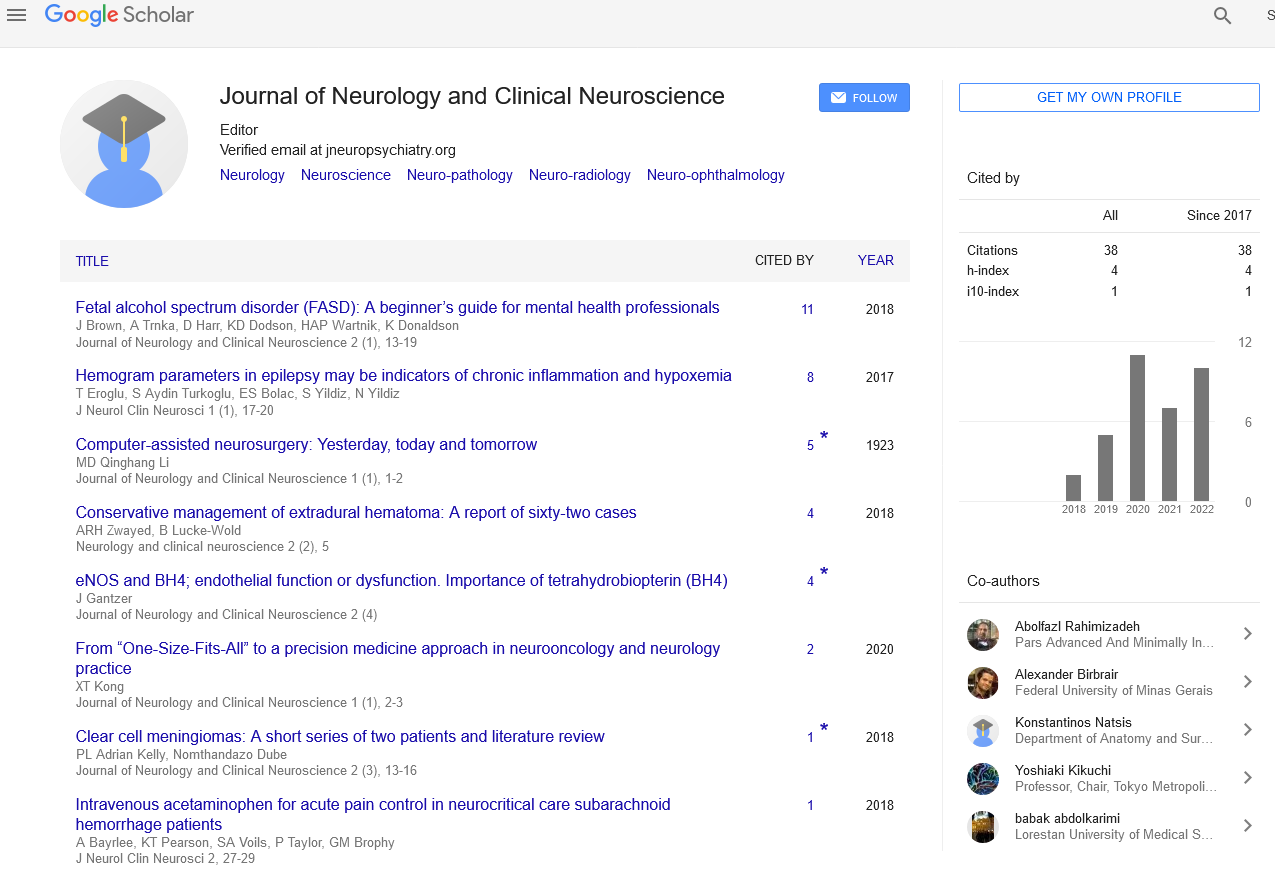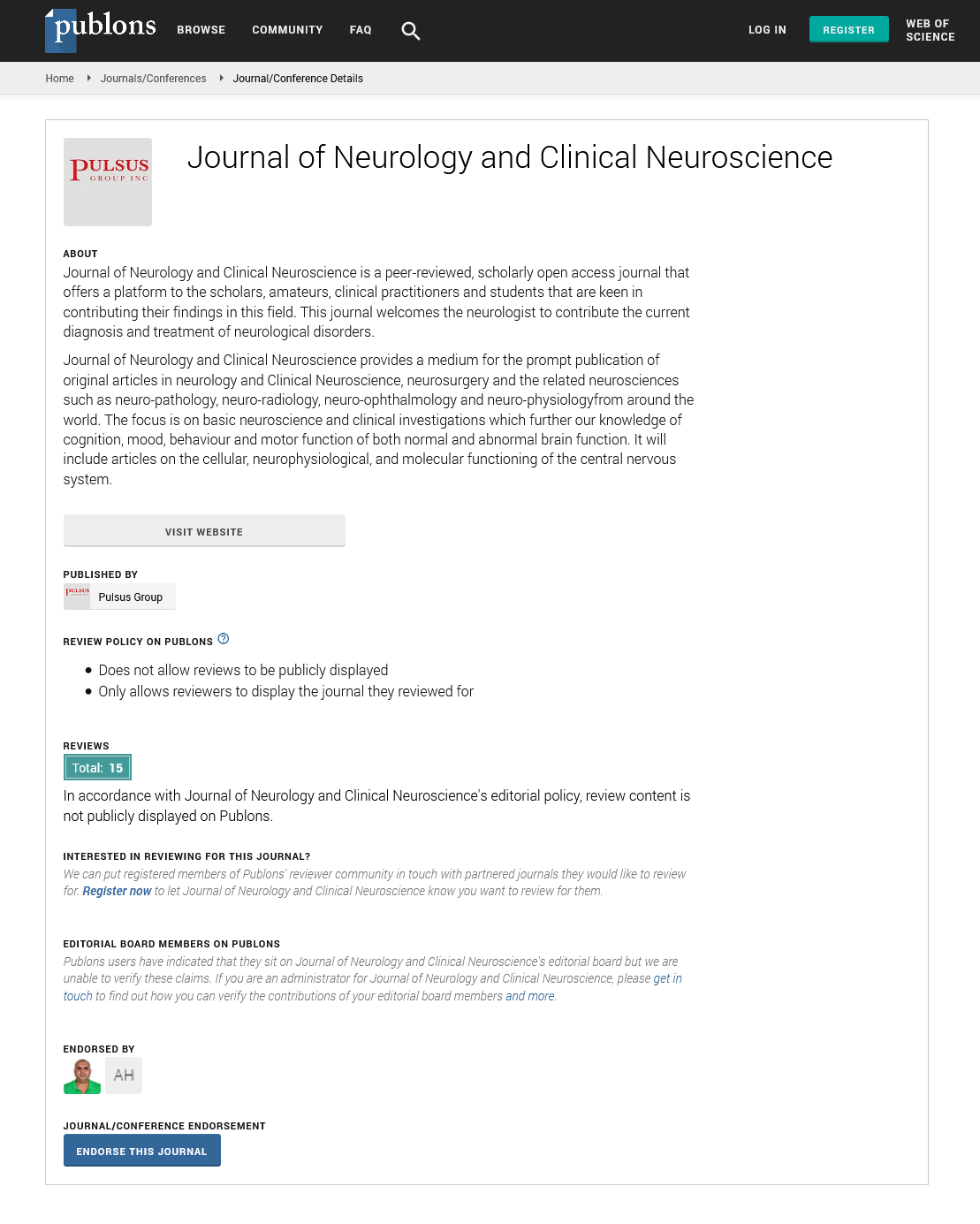Sign up for email alert when new content gets added: Sign up
Assessment of the memory impairment among young and middle age COVID-19 convalescent persons
10th International conference on Parkinson's and Movement Disorders
July 08, 2022 | Webinar
Y Hovhannisyan, S Symonyan, H Torosyan, K Yenkoyan
Heratsi N1 University Hospital Complex, Armenia YSMU, Armenia
ScientificTracks Abstracts: J Neurol Clin Neurosci
Abstract :
Background։ The coronavirus disease 2019 (COVID-19) pandemic emphasized the occurrence of neurological manifestations associated with SARS-CoV-2 infection and highlighted the question of the neuro-pathogenicity of coronaviruses. Studies have shown a direct influence of viral infections on cognition, especially in the development of MCI and dementia. (Damiano, R.F., 2022). It has been demonstrated that many people infected with the SARS-CoV-2 virus experience short- and/or long-term neuropsychiatric symptoms, including cognitive and attention deficits, known as “brain fog” (Marcia N., 2021). Additionally, probable short- and long-term COVID-19 impacts in cognition, even in asymptomatic individuals have been discussed which could be accounted for by direct and indirect pathways to brain dysfunction (Miners, S., 2020). Patients with SARS-CoV-2 infection appear to experience global cognitive impairment, impairment in memory, attention and executive function, and in particular verbal fluency (Daroissce,2021). Nevertheless, understanding of the correlation of SARS-CoV-2 virus with cognitive impairment remains unclear. Aim։ Our study aims to find out memory disturbances among young and middle-aged (20-65 years) COVID-19 survivors (convalescent patients) and clarify the direct connection with the depression. Materials and methods։ On an outpatient basis, we plan to examine around 130 COVID-19 convalescent subjects, including females and males of different ages. Different age groups (20-65 y.o.), with and without subjective memory impairment will undergo several examinations, including general neurological examination, test for cognitive function (RBANS, MOCA), and depression (PHQ-9). Hypothesis։ We hypothesize that CIVID-19 convalescent subjects will demonstrate significant disturbances in their memory and are more correlated to existing depression. We also don’t exclude different levels of impairment in all age and sex groups. Conclusions: A wide range of neurological manifestations, including cognitive impairments, has been associated with SARSCoV- 2 infection. There is no definite evidence to support the direct correlation of SARS-CoV-2 with cognitive impairment and further research is necessary to confirm this correlation, including direct neuropathogenicity of SARS-CoV-2 infection.
Biography :
Yekaterina Hovhannisyan, head of Neurology Service in Heratsi N1 University Hospital Complex,YSMU, Armenia, PhD-fellow at Neuroscience Laboratory, YSMU. After graduating Medical University and clinical residency program in clinical Neurology she made Stroke Fellowship at USC, Los Angeles, USA, “Primary stroke prevention” joint research program with Austria (Christian-Doppler Klinik, Paracelsus Medical University, Salzburg, Austria) and USA (New York Presbyterian Hospital/Weill Cornell Medical Center). Currently, she is mainly focused on Stroke, Dementia, Neurodegenerative Disorders in clinical practice.





